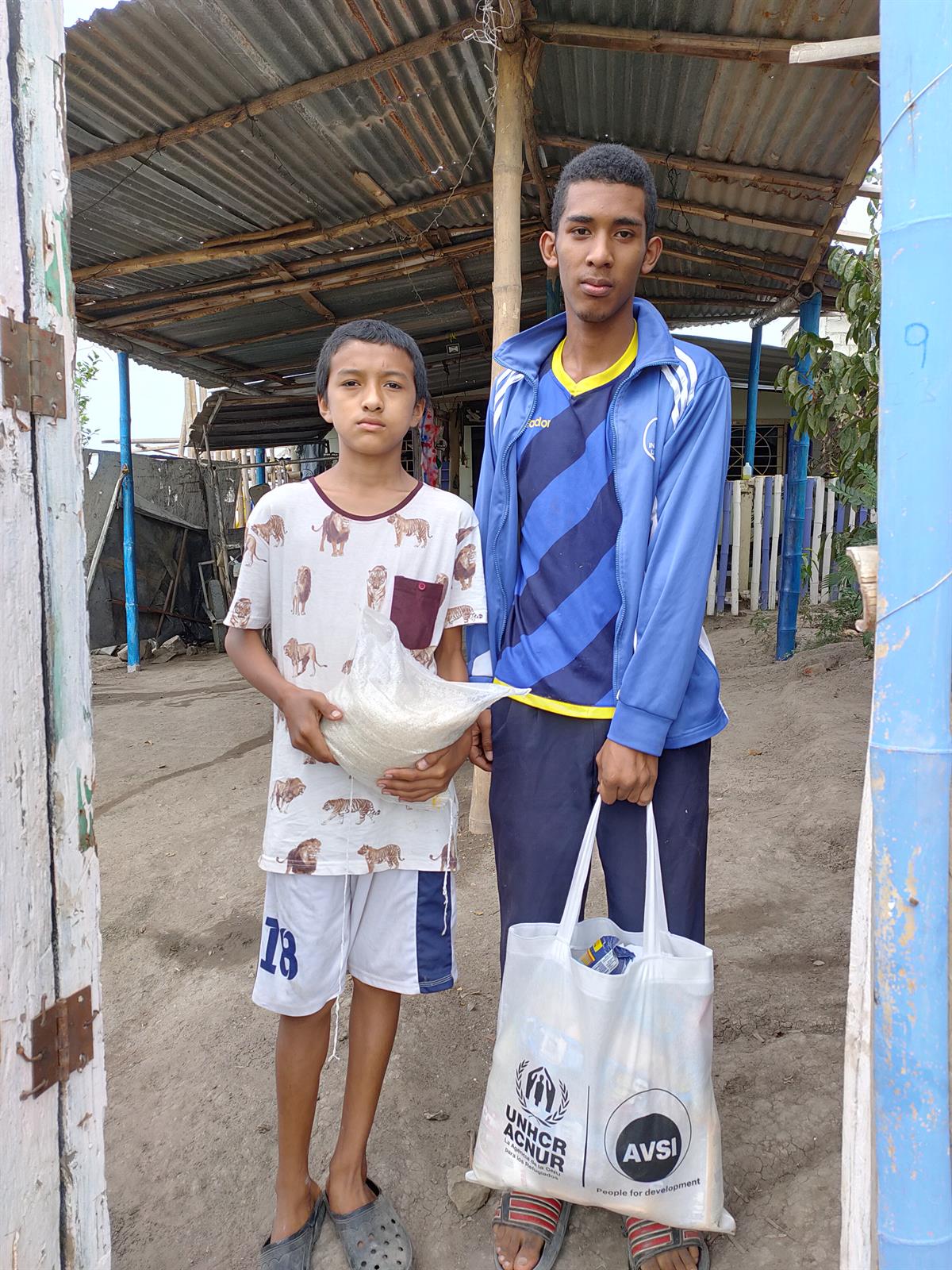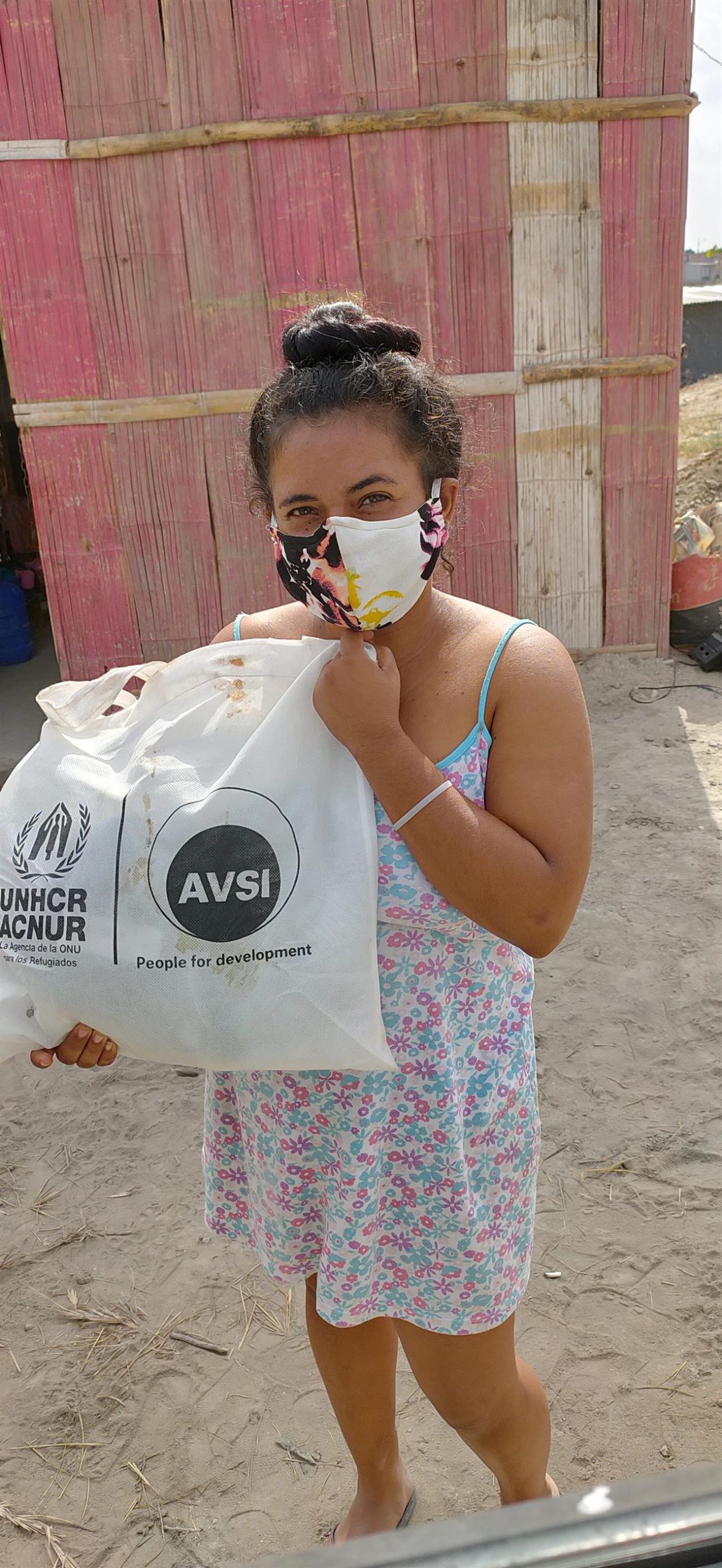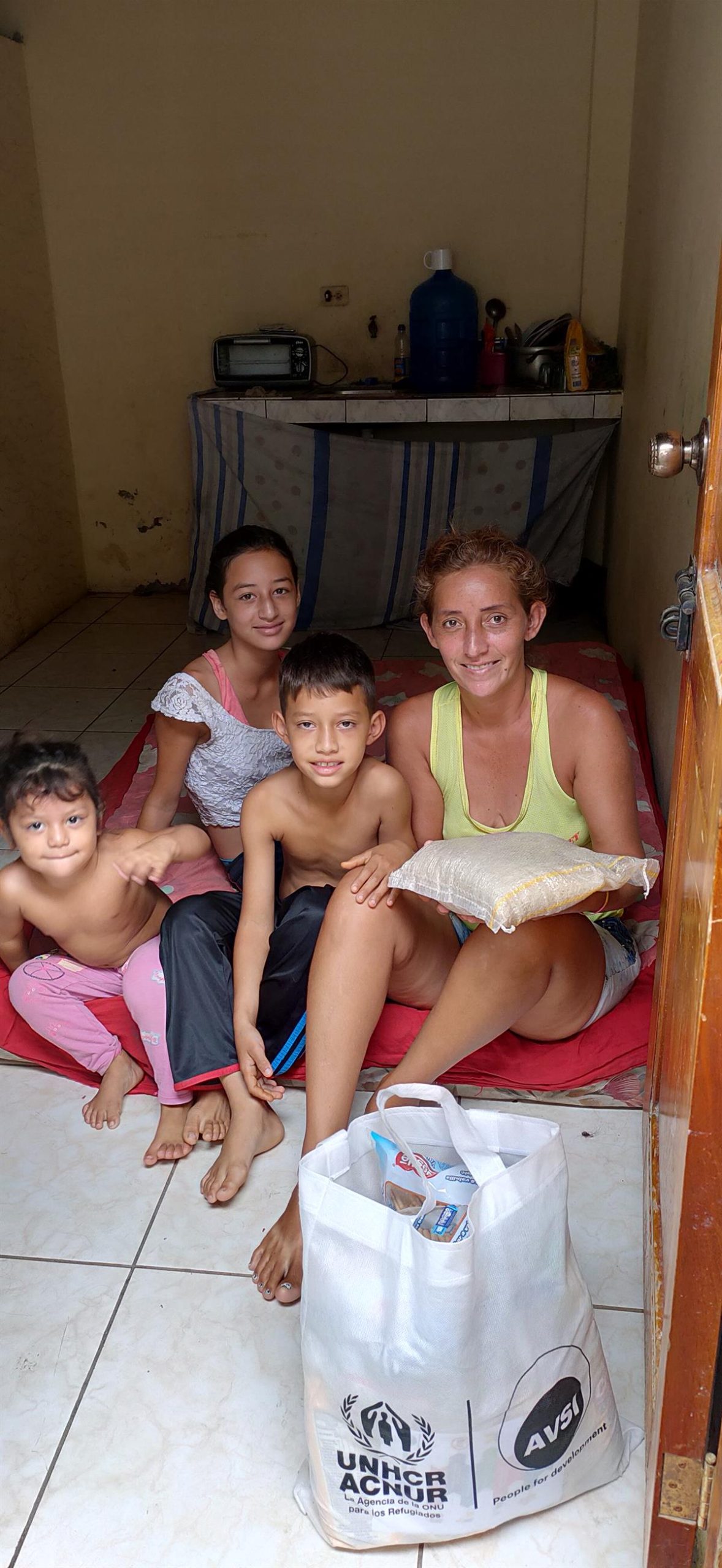Equipped with a mask, protective clothing, and a great desire to help, Ernesto Luque, 48 years old, hugs his loved ones early in the morning and heads to work. Since the start of the COVID-19 pandemic in Ecuador, Ernesto has been delivering food rations and basic kits of protection and personal hygiene to Venezuelan refugee families. Streets are quiet and almost empty, but anxiety and uncertainty fill the air and leave a strong impression on anyone passing through the towns.
"Continuing to work during this pandemic is not easy but we are all taking the necessary measures to be safe. My motivation comes from a desire to help the others instilled in me by my parents. When I come back home, I have the satisfaction of a job well done." says Ernesto.
Before COVID-19, Activados teamwork looked different. Since August 2019, with funding from UNHCR, Activados has carried out information and integration activities for Ecuadorians and Venezuelans in four neighborhoods in the cities of Manta and Portoviejo. These cities were identified as the areas with the highest presence of Venezuelan refugees in the Manabi Province.
The health crisis caused by COVID-19 forced AVSI to change how we work. If this situation is difficult for the average person, it is worse for Venezuelan refugees, since they earn a living working informally on the streets: performing, selling newspapers and baked goods or other food items.
"My main motivation to come to work is knowing that many of them do not have food, have lost their jobs, not only the Venezuelans but also the local community and people coming from other countries," explains Ernesto. "Human beings are a fundamental part of the world, that's why I'm here and why I will keep working until I possibly can, following all measures and different protocols in place during this emergency."



During the pandemic, people in Ecuador are not allowed to be on the street, but some continue to do so in their neighborhoods, where they trade goods with other Venezuelans, which is one of the ways they are able to bring daily meals to their homes. Still, many people do not have food and other essential items. "We are thankful to AVSI for their help in distributing these items" says Leumy Quevedo, a Venezuelan refugee who lives in the Tarqui neighborhood of Manta.
So far, AVSI Ecuador has already delivered 120 food kits, 368 health protection kits and 250 hygiene kits: "Sometimes, I feel powerless because I want to help more families, but I enjoy my work," continues Ernesto.
While distributing kits, AVSI Ecuador, in coordination with the Networks for the Protection of Rights in Manta and Portoviejo, is also working to identify the people and families who have the most needs in health, psychological, educational, and/or legal advice. AVSI is trying to help refugees who are at risk of being evicted because, with no money, they cannot pay their rent anymore. With UNHCR funding, AVSI Ecuador is also delivering 960 food kits to the most vulnerable in the community.